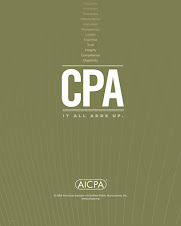We’ve been
telling you since the start of the year that tax planning is the key to paying
the minimum tax possible. We’ve urged you to come in for your free tax
analysis, but we’ve been disappointed that you haven’t accepted our offer.
Most of you
agree that tax planning is a good idea that can save you money. But you’ve
procrastinated, and made excuses to avoid taking advantage of the opportunity.
You told yourself “I’ll wait ‘til later, after April 15.” Then after April 15,
you said “I’ll wait ‘til later, when it’s closer to the end of the year.” Then,
as the year drew to a close, you said “I’ll wait ‘til later, after the election
results are in.”
Well, guess
what. It’s later.
December 31 is
just a few short weeks away. If you we don’t sit down to talk before then, your
best planning opportunities will vanish, just like Cinderella’s carriage
turning back to a pumpkin. And trust us here — you do not want to be left without a
ride home that night!
December 31 is
even more important this year than usual, because there’s so much uncertainty
in the air. Will the Bush tax cuts be extended? How much will the new Obamacare
taxes cost you? What opportunities are you missing to save? We can’t give you
the answers if we don’t sit down to plan.
Do it before
it’s too late. We’ll find the mistakes and missed opportunities that may be
costing you thousands today, and show you how smart planning can save thousands
more tomorrow. So call now to schedule your Analysis!





